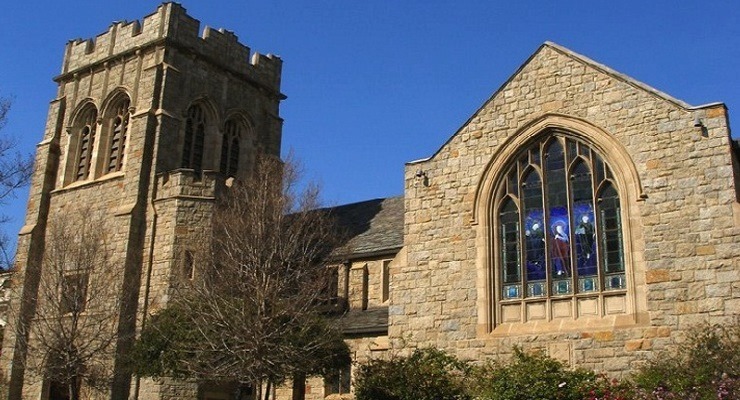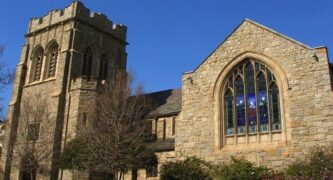
A new Internal Revenue Service rule allowing houses of worship to endorse political candidates comes nearly two decades after Pasadena’s All Saints Episcopal Church faced a high-profile IRS investigation for a sermon discussing moral implications of war and poverty before the 2004 presidential election.
The IRS announced Monday in a court filing that churches, mosques, synagogues and temples will now be permitted to endorse candidates without risking their tax-exempt status, marking a significant departure from the agency’s previous interpretation of the Internal Revenue Code of 1954.
The rule change exempts religious institutions from a decades-old prohibition on political activity by nonprofit organizations, though other 501(c)(3) nonprofits must still refrain from endorsing candidates.
All Saints Church in Pasadena had faced IRS scrutiny in 2005 after rector emeritus George Regas delivered a sermon the Sunday before the 2004 presidential election that referenced the two major candidates while discussing war and poverty.
The IRS notified the church in 2005 it was investigating whether the sermon constituted “implicit” political intervention. Although the agency never conducted an audit, it concluded in 2007 that the sermon did amount to campaign intervention.
The agency closed the case without penalizing the church or revoking its tax-exempt status. In an Oct. 22, 2007, letter, the IRS told the church that no enforcement action would be pursued and acknowledged that a review by the Treasury Inspector General for Tax Administration into the matter was “appropriate.”
All Saints announced the closure of the investigation on Dec. 10, 2007. At that time, church officials affirmed their support for the principle behind the tax code’s restrictions on political activity while defending freedom of the pulpit.
“All Saints continues to support the principle underlying the federal tax prohibition against campaign intervention but is also passionately committed to defending the freedom of the pulpit,” church officials said in 2007.
The church said it would advocate for reforms to prevent politically motivated IRS inquiries and strengthen protections for houses of worship that “speak truth to power in the prophetic tradition.”
The new IRS rule was unveiled as part of a settlement in a lawsuit brought by two Texas churches and a Christian broadcasters association.
The IRS has not yet released further guidance on how the new exemption for religious institutions will be administered or whether similar rules could eventually be extended to other nonprofit groups.














 0 comments
0 comments


